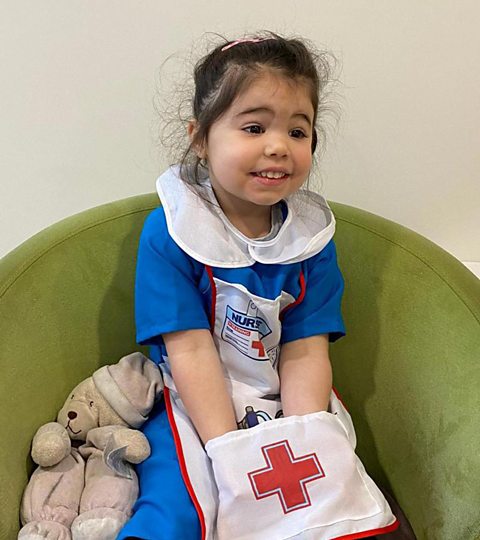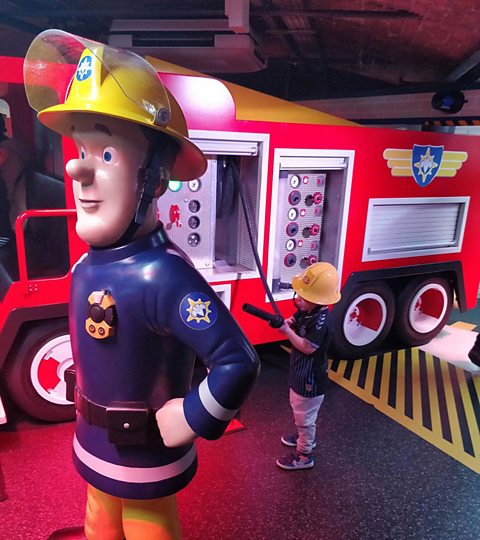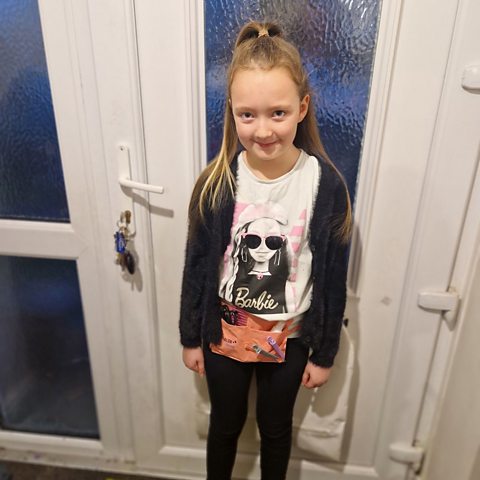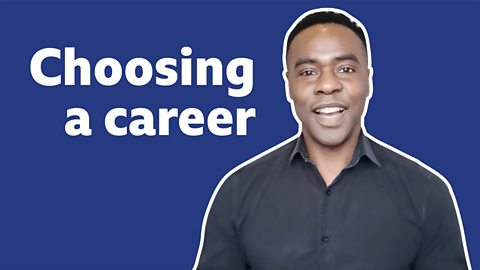BBC Bitesize Parents’ Toolkit has spoken to parents on a UK-wide panel about their child’s future career, and what they’d encourage them to think about when choosing their GCSE and Nationals options at school.
Parents were asked whether they talk to their child about jobs and what they might want to do when they grow up, what jobs they think will be important in the future, and whether they’d like their child to follow in their footsteps. Responses were mixed, with some parents wanting their children to choose subject options they enjoy, and others wanting their child to think about where their options might lead them…
Whatever their age, do you talk to your child about jobs and things they might want to do when they grow up?
“I always tell them to try to enter a career that interests them, as they will find that more satisfying.” - Helen, mum of 17-year-old

The majority – but not all – of parents on our panel have had some kind of conversation with their child about jobs and careers.
Hakim has three children, one of whom is currently 14.
He says: “When it comes to jobs and the future careers of the kids, it’s always an interesting topic. Kids think they can do whatever they desire and dream of, but the truth of life and external factors will sometimes change the path of their career, so yes a conversation and preparation for the real world is a must-have with our kids.”
Alison has a 16-year-old daughter: “It was easier when they were at playschool and primary school and it was all just theoretical, but when they became teenagers they were more reluctant. I don't talk about it much as it seems pressurising and I know they will have careers support and interviews about their plans at school.”
Helen has a 17-year-old girl: “I've always tried to help them make educational choices that are linked to things they enjoy, as I always tell them to try to enter a career that interests them, as they will find that more satisfying.”

What jobs has your child suggested they may want to do when they grow up and leave school?
One is wanting to join the police. One would like to look into project management. One would like to be an explorer and the youngest would like to be a mermaid.” – Louise, mum of four
Angela’s 16-year-old is studying for his Highers and isn’t sure what he wants to do yet, but her eight-year-old son wants to be a dentist, “because apparently dentists have mansions,” and earn extra money playing the bagpipes at weddings.
Kim’s 15-year-old daughter wants to be aeroplane cabin crew, whereas Louise’s four girls want to be “in the police, in project management, an explorer, and a mermaid”!
Broadly, when they were younger, children from our parents’ panel wanted to be things like a vet, hairdresser, footballer, YouTuber, chef, nurse and doctor, whereas when they got towards GCSE options and then college age, things like art, animation, psychology, accounting, law and engineering also came into the mix.
Bitesize Careers: Top ten jobs teenager want when they’re older.


How do you feel about introducing the topic of work to your child?
I generally feel unconfident talking about work as I never have discovered my dream job or had an amazing career.” - Alison
Some parents on our panel found it easier than others to talk to their child about work, partly due to their own experiences.
Emma says of her 14-year-old: “She knows a lot about work and what her parents do. It amazes me that some of the children at her school don’t even know what their parents do for a job. I have a feeling she will end up owning her own business as I have my own business. I think she would like to be her own boss.”
Dad-of-three Matthew adds: “One of my children talked about being an engineer of some kind. They are in their second year and will be picking their subjects soon and they are going to pick engineer-based subjects.”
GCSE and National 5s options time was also an anxious period for some parents on our panel.
Lindsay has a 16-year-old boy: “He has shown interest [in the world of work] but not much. He's just concentrating on his GCSEs. We’ve spoken about the different courses he can do after college and been to look around the campus. It’s nerve-wracking as he's only 16 and unsure what he wants to do.”
What would you encourage your child to think about when preparing to pick their options?
“At school age, children need guidance and support to help them achieve their dreams.” - Jasmine, mum of six-year-old
Several respondents said they would talk to their child about their options, but that ultimately the decision was down to their child. Many parents, like Ian, Lindsay, Victoria and Sherlene were keen for their child to choose something they enjoy because “they’re more likely to succeed” and “it’s hard enough for kids nowadays”.
However, other parents on our panel wanted to discuss the pros and cons of their child’s GCSE options with them, and how those choices may relate to a future career.
Richard says: “I would like to help and advise as I never really had the discussion with my parents. I don’t want to be too pushy but I want them to understand what it will take to achieve what they want to do rather than start something that they don’t want to finish and have wasted their time.”
Jasmine expands: “I think I would encourage my daughter to think about what job/type of job she would want to do first and then help her decide on suitable options to pick at school that would help her get that job. I would never tell her what to do but I would certainly ‘guide her’. At school age, children need guidance and support to help them achieve their dreams."
Watch our video with careers coach Mark Anderson: How to support your teen as they decide on their future career


What jobs do you think will be important in the future?
All the practical jobs – farming, building, plumbing and the like – will still be essential" - Ben, dad of a six-year-old boy.

Many parents on our panel felt technology, AI and computing would all be important in future jobs. Jermaine has two primary-aged children, and wants “to introduce my kids into coding and getting them computer literate.” But many also felt jobs involving people would not disappear, particularly those in trades, health and social services. Louise believes we will always need manual jobs: “Engineers, shelf stackers, emergency services, educators, hospital staff.” And Jade agrees that “great solicitors, nurses and doctors will never be out of work”.
Jobs of the future: What will our children be doing in 2040?
The majority on our parents panel, when asked whether they’d like their child to follow in their footsteps, said no. The main reasons being they wanted their child to follow their own interests, they wanted them to have a more rewarding or prosperous career, or because they themselves were dissatisfied with how their careers had panned out.
Dilan: “I would like my child to follow his dreams and make sure he gets a good education and chooses a good career.”
Sherlene: “I would not mind If my child followed a career in public service as I have.”
Michael: “I would like my son to just focus on being a good hard-working person. Along that journey he’ll find his calling.”

Top tips for talking to your child about their options
Michelle Rea is from Talking Futures, an online resource that helps parents talk to children about education and careers options. She says when it comes to GCSE and Nationals options time, parents can be “anxious about saying and doing the right thing”. These are her top tips for starting a conversation with your child:
1. Discuss passions
“Start a conversation by asking your child a question about themselves: favourite subject, teacher, or thing they like to do outside of school for example. This will make them feel heard and start things on a positive note.“Encouraging young people to explore how their passions could apply to a selection of jobs or careers is a good way to prioritise subject choices… without restricting what success would look like for that child.
2. Pick your moment
“Try and pick a time when your child is more relaxed, perhaps on a car journey, at the weekend or over dinner. Research and psychology support that when children are eating their favourite foods, they’re happier, more relaxed, and more engaged in conversations.
3. Keep the conversation relaxed and informal
“The Conversations Cards tool on the Talking Futures website… provides conversation starters for parents to use to get teenagers thinking about what they want to do in the future. Some children think they know exactly what they want to do as a job when they’re older and others don’t – it’s important to remind them that this is ok too.
4. Don’t push your own opinion:
“The temptation is to stick with what we feel most confident talking to our child about and that’s usually what we know and have experienced ourselves. However, the career landscape and the routes to getting into different careers have changed since parents were at school. It’s important to remember that having meaningful and useful career conversations doesn’t mean you need to have all the answers, and it’s OK if you don’t know. By exploring education and career options together, parents can help their child find the right next step for them.”
Talking Futures have their Conversations Cards and further advice on talking to your child about their future career.

Bitesize Study Support has more help and advice for your child as they choose their options:
GCSE options: Everything you need to know about choosing your GCSE subjects
Top tips on choosing the best GCSE or Nationals options for you!
What NOT to do when choosing your GCSE or Nationals options!

Bitesize Careers has lots of suggestions and personal stories on the world of work for your child to explore, including these articles:
What GCSEs did Harry Styles, Bukayo Saka, and Molly-Mae get?
Are you struggling to pick your GCSE or Nationals options? Find out which subject choices your favourite celebs studied here!

Can you guess what jobs these people do? quiz
Take this quiz and test your knowledge about what jobs these people do based on their Nationals and GCSE options.

Five ways to help your kids kick-start revision
If you're a parent, how you can support your teenager this exam season?


Parents' Toolkit
Fun activities, real-life stories, wellbeing support and loads of helpful advice - we're here for you and your child.

How to support your teen as they decide on their future career
Career coach Mark Anderson has advice for parents of teens who are choosing their options at GCSE or are nearing the world of work.

Jobs of the future: What will our children be doing in 2040?
Thanks to technology the world of work has changed faster than ever in recent years - so what jobs might our kids be doing one day?

School anxiety and refusal: How to help your child get through tough times
Tips to help parents understand emotionally-based school avoidance and offer support to their child.

How to stay positive about maths when teaching your kids
Advice for parents from the National Numeracy charity

Helping your child keep a positive mindset for homework
Sophie, aka Tired 'N Tested, explains how you can help your child stay positive and resilient when their homework gets tough.
